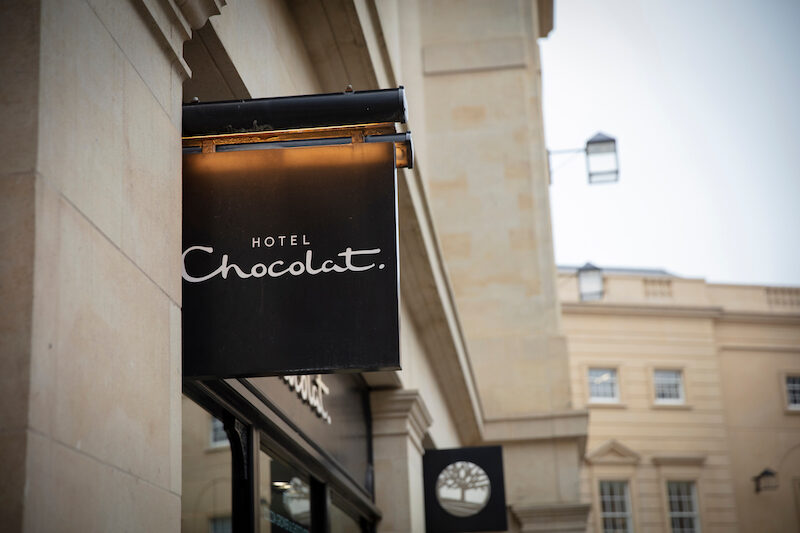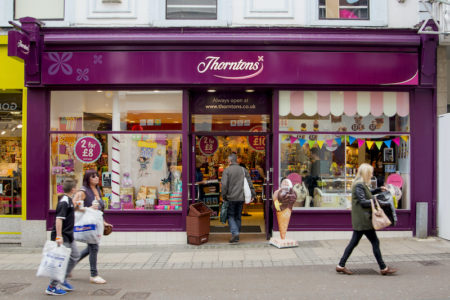Hotel Chocolat sale raises questions over its future direction, and hopes for independent businesses

Bath, Somerset, UK, 22nd February 2019, Shop Sign for Hotel Chocolat
The pending sale of British confectionery business Hotel Chocolat marks a particularly notable marker for what can presently be achieved by independent confectionery businesses.
While on the one hand, the fact that the company has been valued at more than half a billion by its buyers, Mars, speaks of the potential that the enterprise still has on an international level, given the continued rise of the premium product market in many territories.
On the flip side, it also serves to highlight the firm’s recent woes that placed it in a delicate position that made a potential takeover bid appear more likely – with bids to crack both the Japanese and US region failed to materialise, compounded by the closure of its fledgeling stores in America, which had shown promising signs until the pandemic placed a notable dent in its ambitions, along with many others in the sector.
There has been much industry speculation as to whether the company has been sold at an inflated price or not – while this is a prime consideration of course, perhaps the most concerning aspect, is whether the company’s original goals will be fully followed through under new ownership.
What made Hotel Chocolat’s story a particularly interesting one, is that co-founder Angus Thirlwell’s belief from the outset that setting it up as an independent entity enable it to fulfil all of its aspirations, including setting up an especially ethical supply chain based on the creation of its own cocoa plantation in St Lucia. This was hailed with much fanfare around the world, giving renewed hope to a community in terms of employment opportunities, and a revival of its cocoa trade. Hopefully this will be maintained under the guise of global corporation ownership with Mars.
For its part, the confectionery giant has made much of its Cocoa for Generations investment over the next decade, which the acquisition of Hotel Chocolat could well be considered to align with, though it remains to be seen how the business will fare under a major brand. Significantly, Angus Thirlwell has confirmed his desire to stay on as CEO of the firm for the next few years to oversee its transition phase.
It’s clear from his statements that the company required a greater level of investment in order to grow, but it remains a little disappointing to some observers at least, that yet another independent company has been acquired by a major, and couldn’t find another route forward amid admittedly challenging conditions, to further evolve the business on its own.
Neill Barston, editor, Confectionery Production
- Keep in touch at [email protected] or via social media: @confectionprod



